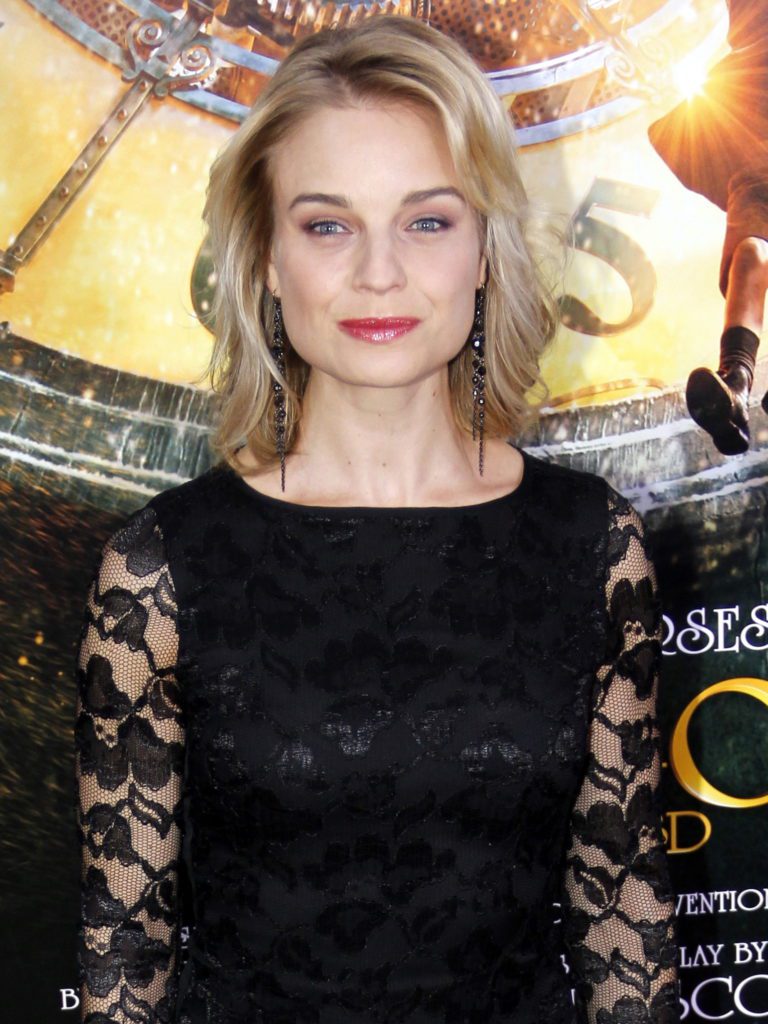An English Olivia, Residing in Georgetown
By • October 25, 2017 0 1830

There is something that makes you want to sit up straight when you hear an English accent over the telephone. It’s a feeling that just doesn’t resonate over Twitter.
You listen closely to actress Hannah Yelland. It’s appropriate that you do so, after all, since she’s playing the Countess Olivia, one of a number of characters besotten and bewildered by the onset of sudden love in William Shakespeare’s beguiling romp “Twelfth Night,” opening Nov. 14 at Sidney Harman Hall in a Shakespeare Theatre Company production directed by Ethan McSweeny.
Yet, you probably don’t need to stand on ceremony or speak ceremoniously; while Yelland, London-born, is definitely English, she’s not a Shakespeare veteran. “Twelfth Night” is only her second appearance in a work by the Bard. The first was another sojourn at the Shakespeare Theater Company, playing Hermione in “The Winter’s Tale” in 2013.
“I don’t know why,” she said. “Shakespeare is always challenging to any actor or actress. It’s a test of your skills.”
Yelland came by her acting chops or inclinations honestly. Her father, actor David Yelland, appeared with her in “The Life and Adventures of Nicholas Nickleby,” a highly popular stage production of the Charles Dickens novel.
“There’s the English again,” she said.
Most English of all and most idyllically successful for Yelland professionally was her appearance in “Brief Encounter,” when she played a lonely English housewife in a production which got her a Tony Award nomination, and took up a good part of her life.
“That was a happy time, yes,” she said. “It was a wonderful role. And something like that, you never get tired of it. You just find things almost every time out. I loved doing that. The character still echoes sometimes.”
The play was an adaptation of the very successful 1945 film starring Trevor Howard and Celia Johnson, itself based on a one-act play by Noël Coward.
“There are times when things come together,” Yellen said. She and her husband, attorney Michael Bahar, purchased a house in Georgetown, where they live with their 21⁄2-year-old daughter and their Havanese dog Henry, named for King Henry VIII.
“People told me that I would love Georgetown, that there were many aspects of an English village to it. It’s full of history and we do love it here.”
On the way, she also picked up another local credit at Arena Stage, playing Valerie Plame, the CIA agent outed by members of the George W. Bush administration during events leading up to the Iraq War.
“That was very different, of course,” she said. “You’re playing a living, real person, and you always have to be cognizant of that, the proximity of events being very fresh, still.”
“Twelfth Night” is one of Shakespeare’s most popular plays. “It’s an entertainment, to begin with, it has all the elements that are crowd pleasing but also much more,” she said.
The principal spur of “Twelfth Night” is romantic confusion, with, it goes without saying, altogether endless cases of mistaken identity, in which the heart knows what it wants but fails to recognize it.
It has twins — yes, twins! — counts and countesses, ship captains, girls seen as boys and otherwise, and there are shipwrecks, duels and a bit of cross-gartering and familial freeloaders and the moment when all (or most) is revealed.
The twins are Viola and Sebastian, who are in a shipwreck and think they are lost to each other. Viola disguises herself as a boy named Cesario, with whom the languid Countess Olivia (languid and mourning her brother) falls in love. Viola is smitten with Duke Orsino, who is in love with Countess Olivia.
Let us not forget the motley but cheerful crew hanging out at Olivia’s house, including the aptly named Toby Belch, her uncle, who delivers the famous line for the justification of fun: “Dost thou think, because thou art virtuous, there shall be no more cakes and ale?”
“It’s all more than a bit confusing. People fall in love instantly, and then have to sort it out, as is often the case,” Yelland said. “Shakespeare is very contemporary, and I think the themes echo in what’s going on in the world today, between men and women, in terms of gender, also.”

